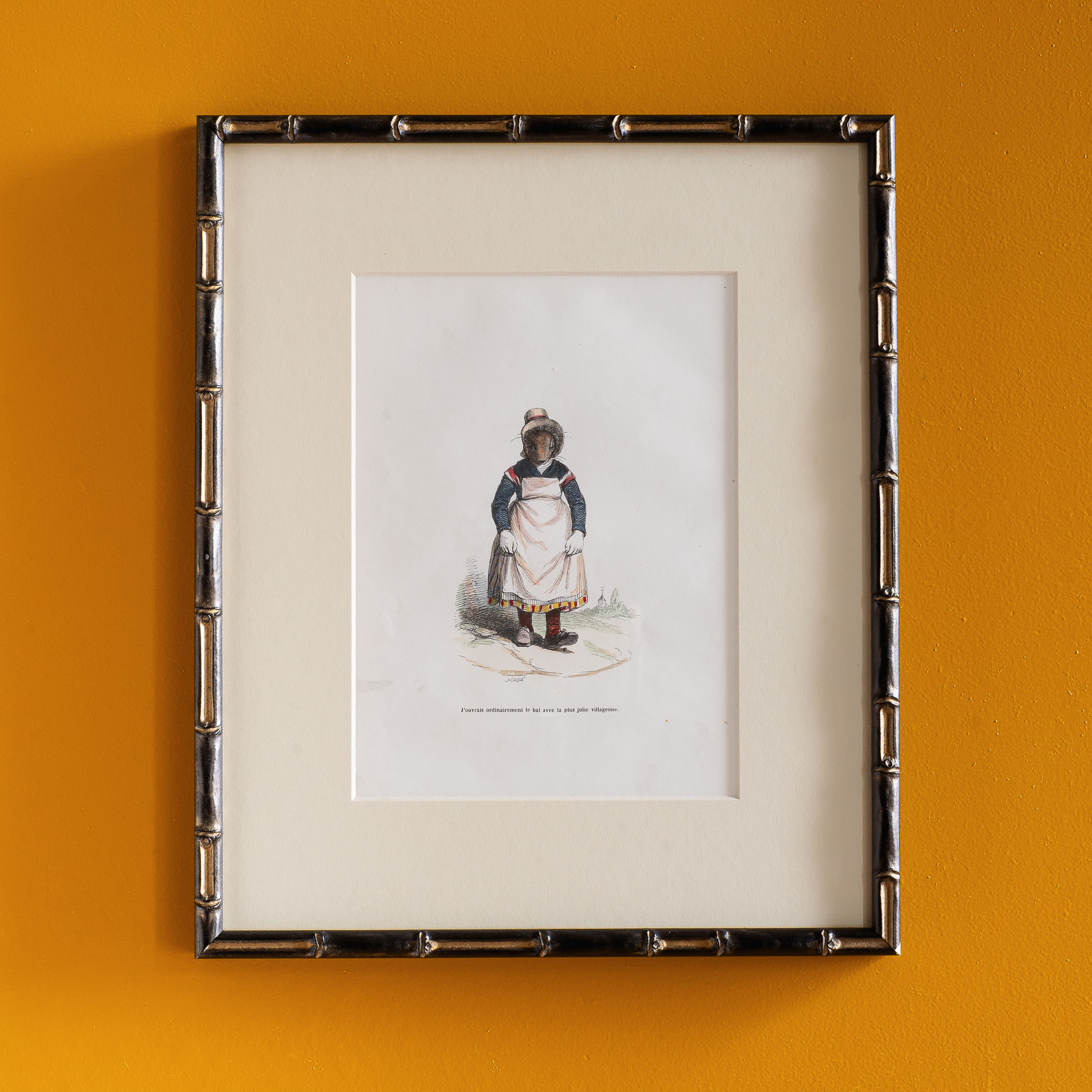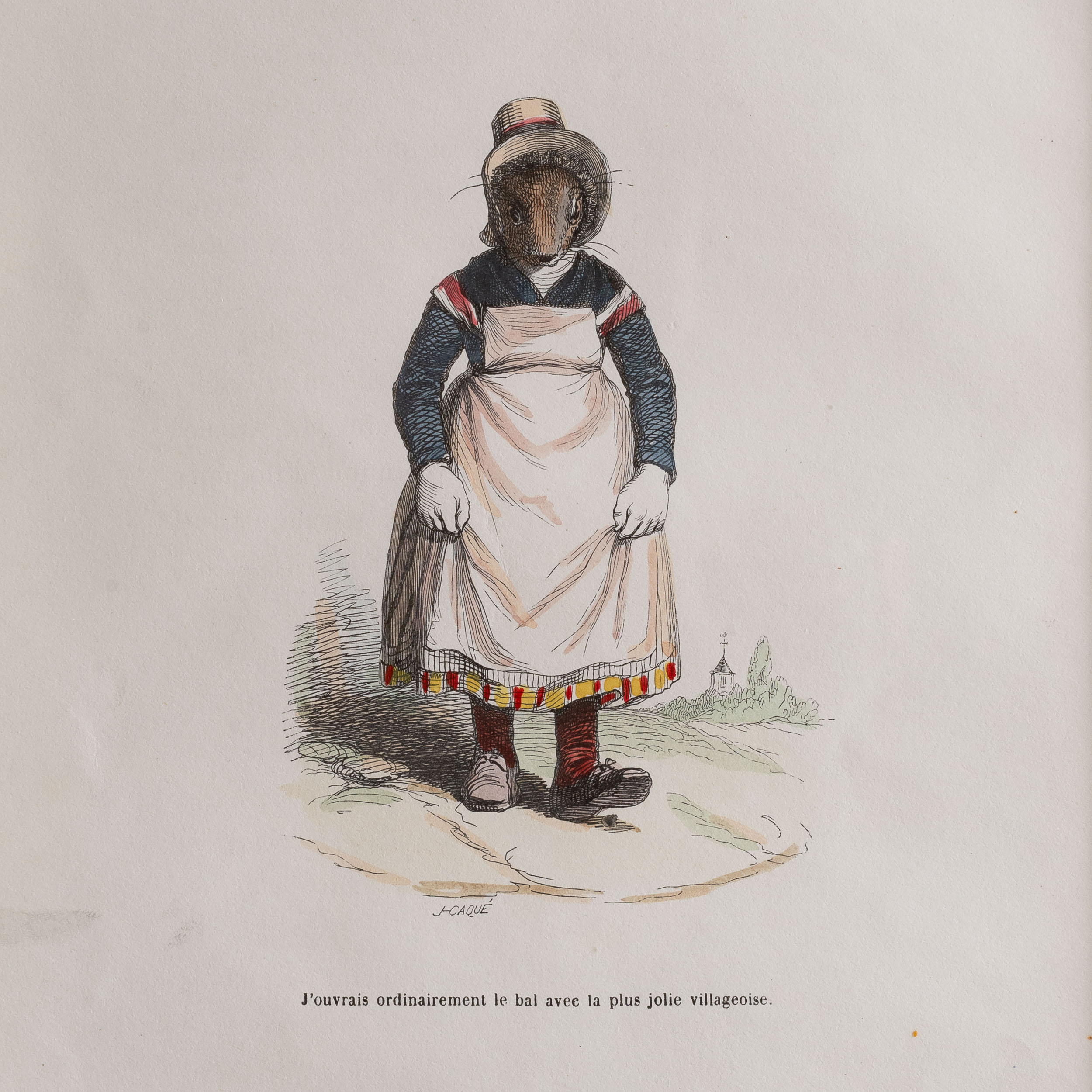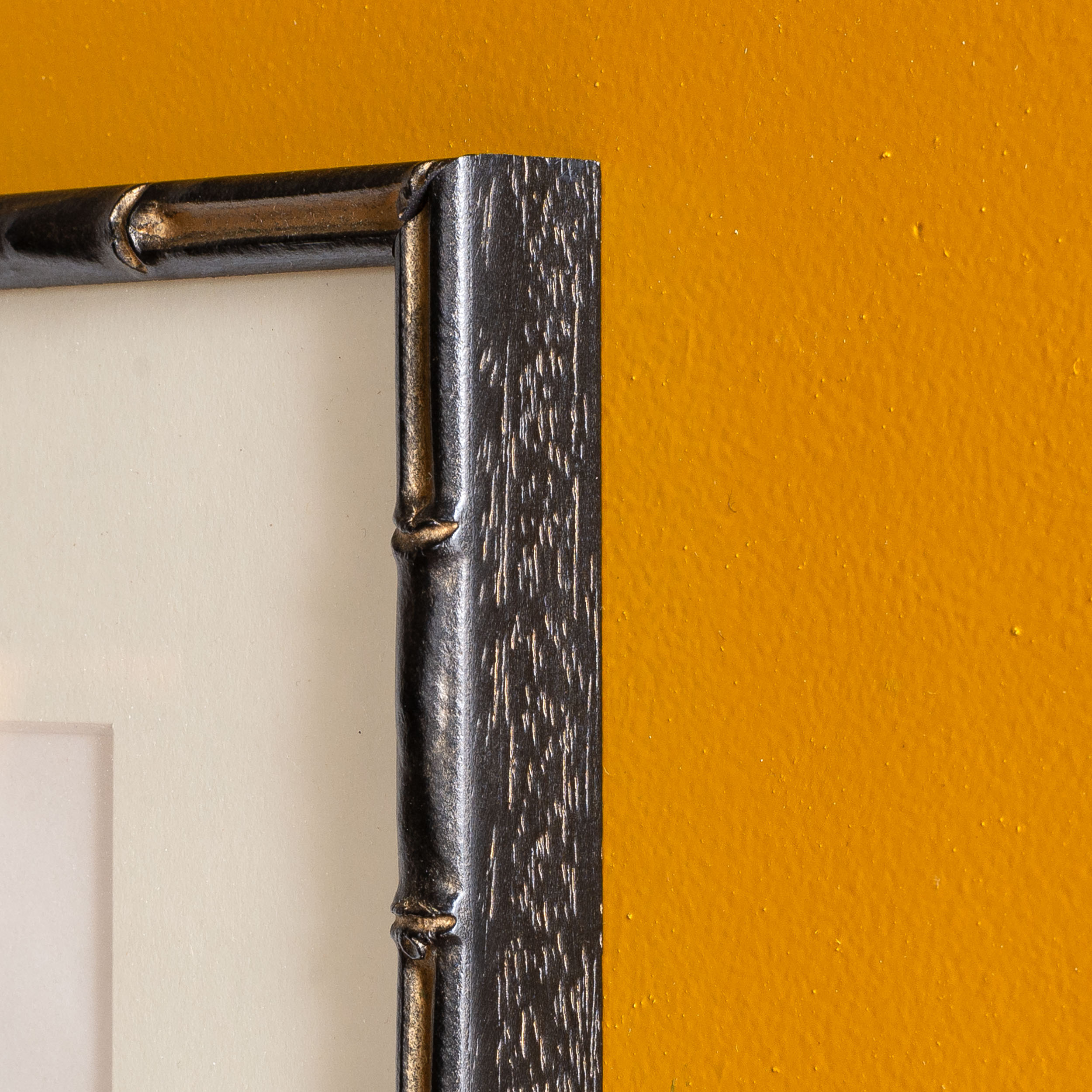Public and Private Life of Animals, by J. J. Grandville, ‘la plus jolie villageoise’,
First published in France, these prints are based on the drawings of the famed caricaturist J. J. Grandville. Born Jean Ignace Isidore Gérard, Gradville; he fought on the barricades during the revolution of 1830 which dethroned Charles X, the last Bourban king. It was during this period that his cartoons appeared in two of the most famous satirical journals of the time; Le Charivari and Le Caricature, but in 1835 these publications were suppressed by the government of Louis-Philippe. This event extinguished his income and means of political expression and forced him to start making a living by book illustration. The ‘Public and Private Life of Animals’ allowed him to criticise society and its effect on individuals through one of the oldest narrative types; the animal fable. His caricaturist’s skills combined the human and animal characteristics giving him a vehicle of expression as to what was not permissible in ‘Society’ but was perfectly acceptable when the material was presented as humorous or satirical.
£220 each
In stock
Original steel-engravings with hand-colour, published 1877; London, S. Low, Marston, Searle, & Rivington. Framed in faux bamboo with cream mounts.



